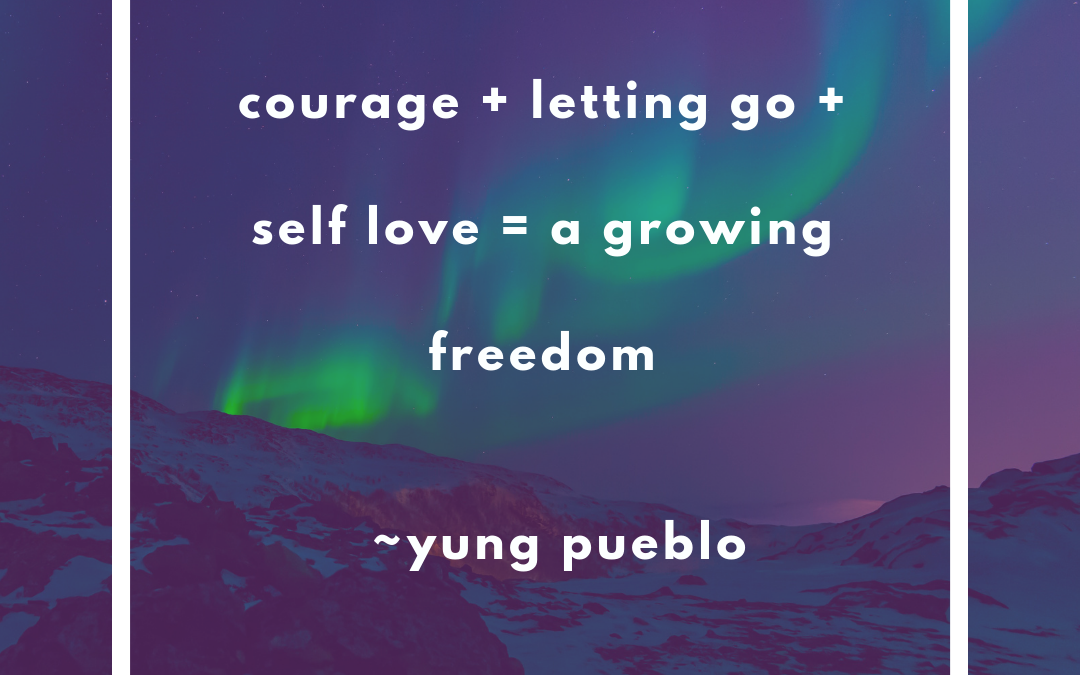After 49 years on the the planet I’ve learned a lot. I’ve learned to embrace my fears. I’ve learned about forgiveness and resilience. I’ve learned about the importance of growth even when I’d prefer stagnation. And I thought I’d learned acceptance around loss of relationships and how to rebound.
Spoiler alert: I was wrong.
While I had successfully mastered the listed lessons, there was one I’d not yet completed: Grieving the living. Or, more importantly: How to grieve someone who’s still alive.
What is Grieving the Living?
What is grieving the living? Good question. It’s mourning the loss of a human not returning to my life, yet who’s still happily existing.
I didn’t know how to honor the ways the relationship shifted me (and how without her I felt empty inside), even though I knew the relationship had come to its logical conclusion.
And, as with all things I’m befuddled by, I like to think that there’s a chance you, too, are challenged by these same scenarios—and a blog post was born. So, now we’ll talk about grieving the living — and some thoughts on how to navigate through that.
How to Go About Grieving the Living
Feel the Sads
For me, the hardest part of grieving the living — flat out totally being consumed with mourning someone still around — was found in the minutia of daily living. I would see or hear something that only the two of us would find funny, and my immediate instance would be: XXX would love this! I should share it with her!
And then, naturally, depression set in. Well-meaning friends would try, saying things like, “Tell me all that stuff! I’ll laugh,” but it just wasn’t the same. You probably know what I mean.
My biggest lesson around grieving the living, a human who’s alive and well but gone from my life, was coming to the realization that mourning is not only appropriate, it’s healthy to feel the sads. It is okay to have reflex feelings of sadness when these visceral moments hit, and it’s more than okay to pause and embrace those feelings.
In my situation,grieving the living felt less miserable to imagine how my ‘missing person’ would have experienced the triggering moment than to attempt to replicate it with someone else. For me, the former was sad, and the latter seemed sad plus hollow. Ick.
Look in the Rear View Mirror….
I learned as I’ve gone through the process of grieving the living that it’s important to look in the rear view mirror, but it’s equally as important to not take up permanent residency there. Remember, the person is still here, they are just not in your life at the moment.
Equally as important in grieving the living is remembering that the present moment doesn’t override your shared past. Even though your current relationship has shifted, it doesn’t change the connection you experienced.
This is a tough one, but if you can and as part of that looking in the rear-view mirror business, resist the urge to purge your literal and metaphorical space of remembrances. Instead, designate a finite time to reflect. Consciously stop and acknowledge the good this person brought to your life, and the impact she had on your world.
Trust Your Gut
The admonition to trust your gut when it comes to grieving the living actually means do not do the ‘reach out and try to repair’ move — which is generally born from a sense of loneliness. Or, more candidly put, if you’re me, don’t do it more than, say, 10 or 11 times.
Maybe it’s not too late? Maybe we can fix this? Maybe I overestimated the rift?
Chances are good it is too late, it can’t be fixed, and you didn’t overestimate. But hey, give it a try if you don’t want to instinctively trust your gut. Chances are, your gut is leading you in the right direction, but sometimes it feels good to try and convince it that it’s wrong.
Let it go.
Don’t slam the door.
Don’t burn bridges, because we never know what’s coming down the path.
But do listen to your gut when you’re ready and release for the moment.
When we become still and are open to hearing what our intuition is telling us, we know what to do.
Exhale
It’s important to remember that whatever the relationship, it wouldn’t have ended if it were meant to exist in its current state. A sense of freedom and/or the ability to fully exhale, however, only arrives when we take responsibility for creating false expectations. When we embrace grieving the living.
These flawed expectations take myriad forms, (e.g. I need you to behave in a certain way to live in my home, or I want you to be something you simply cannot be, etc.), but when we are honest with ourselves, we can see that they are there—and realize they are flawed.
Whether the relationship you are grieving was a romantic one, a friendship, or a familial one, it is as nuanced, layered, and simple as unmet expectations. In my own situation, when I paused and was willing to assume responsibility for the unrealistic expectations I had placed on my person, my emotions lifted. I was able to experience gratitude for the relationship and, more than that, a deep appreciation for all I had learned throughout its process.
In short, I was finally able to exhale — by way of allowing the process of grieving the living to happen.
Did these steps aid me in handling my grief post-relationship ending?
Yes.
Did these steps immediately heal and/or allow me to move forward without a massive sense of loss?
Absolutely not.
For me, grief is attempting to make sense of a situation and pushing myself to just know, and to accept, the fact that something lies ahead. For me, grief is the Yung Pueblo notion that we cannot erase memories, nor should be desire to, but we can release the heavy energies attached to them.
What about you?
For me grief is attempting to make sense of a situation and pushing myself to ‘just know’ something lies ahead.
For me grief is the Yung Pueblo notion that I started this post with, which is the belief that we cannot erase memories (nor should we desire to!) but we can release the heavy energies attached to them.
And you? Have you had to grieve the loss of someone still alive? How did you handle it?
The original of this article first published on the Carla Birnberg blog.
Other articles you should probably read:
Handling Separation: 6 Tips for Keeping Your Sanity [maybe]
4 Lessons Learned from Coaching Cheer
On Death and Dying: Poof She Was Gone
- Grieving the Living: The Path to Healing - October 24, 2018
- Handling Separation — 6 Steps to Keeping Your Sanity [maybe] - October 16, 2018
- Surviving the First Weekend Without Kids - November 29, 2017









